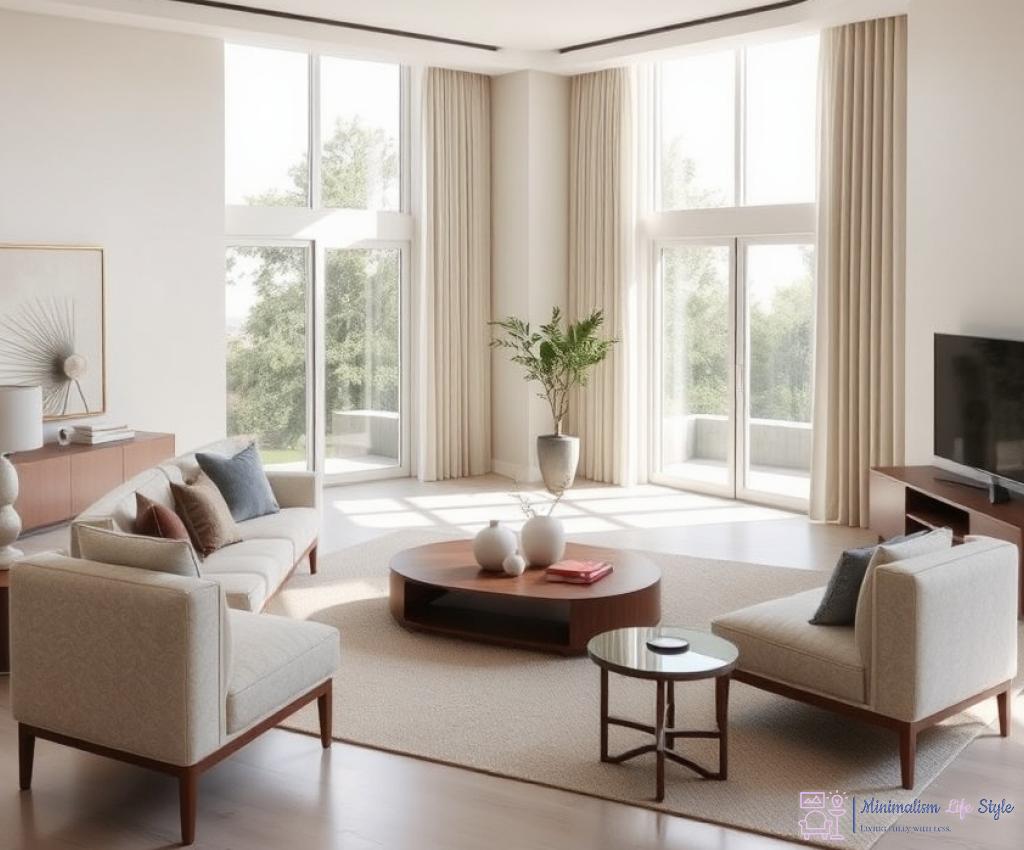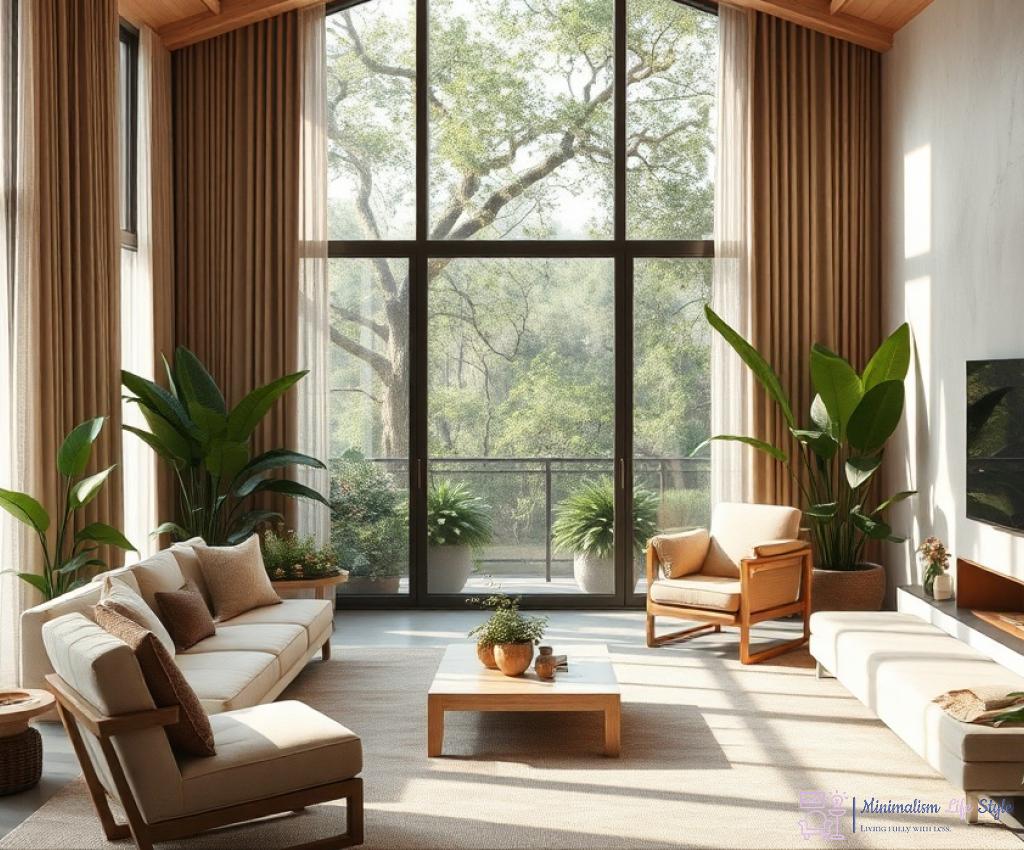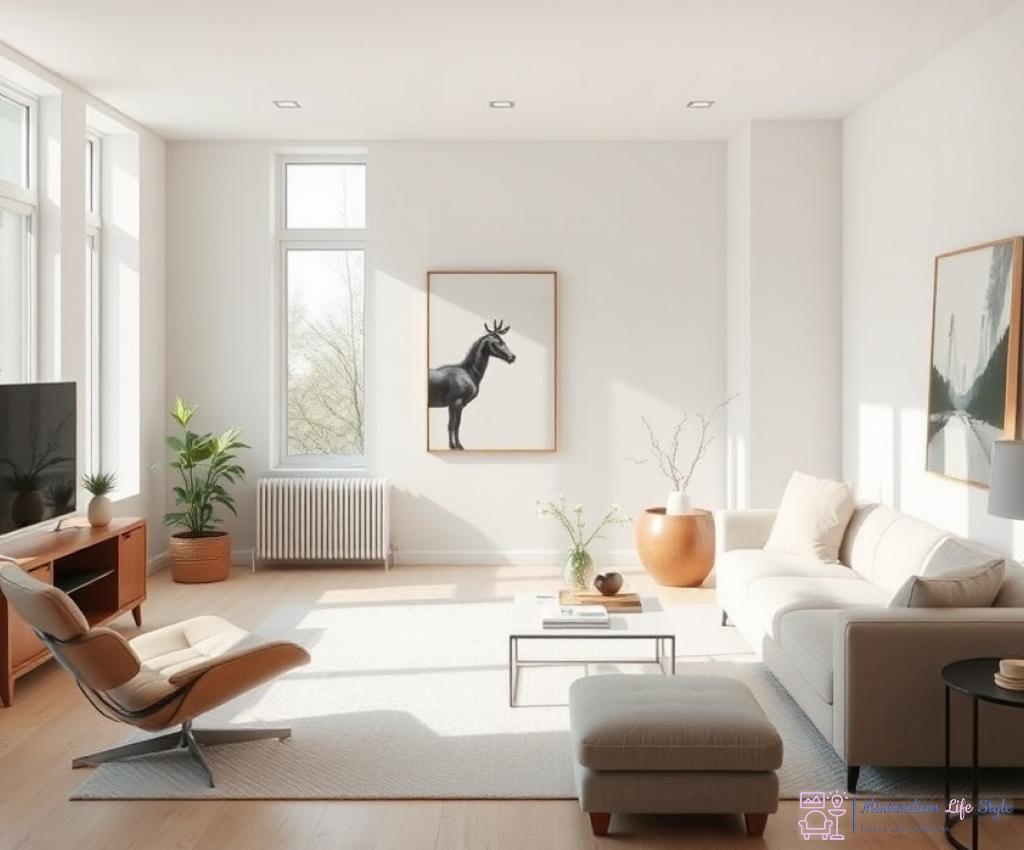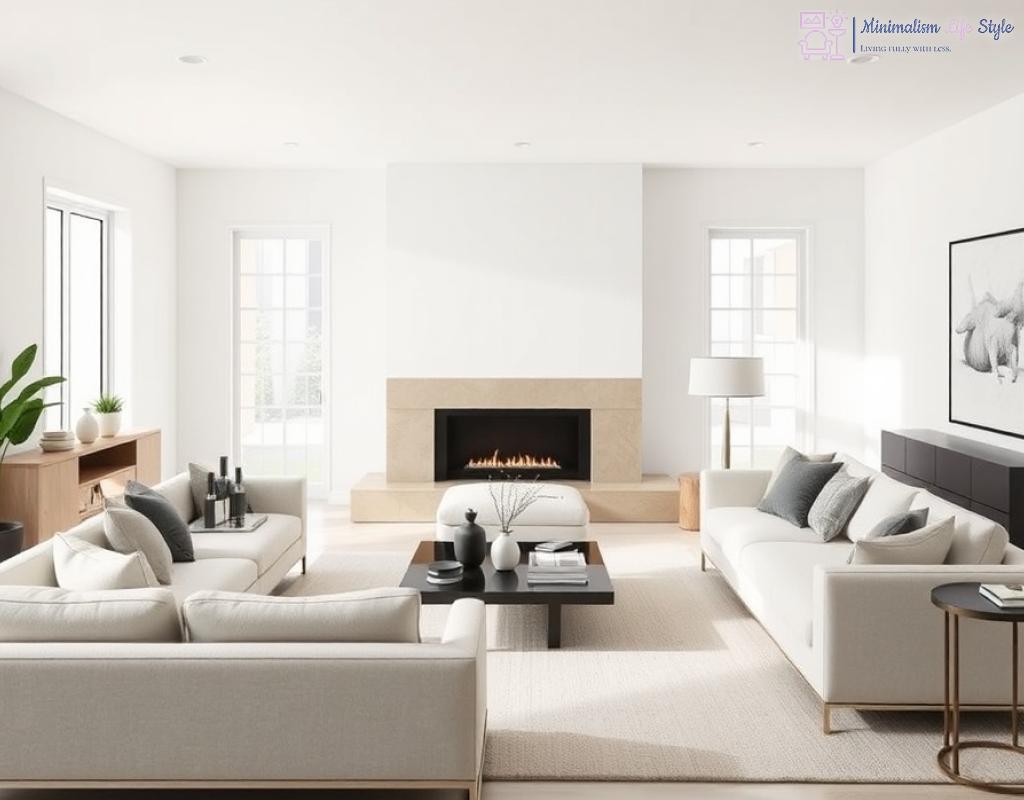The Art of Less: Luxury Redefined

In a world saturated with excess, the modern luxury consumer is undergoing a transformation. Minimalism, once seen as a mere trend, is now a lifestyle choice that reflects deeper values. The art of less is reshaping how affluent individuals perceive high-end purchases, leading them to prioritize quality over quantity. This shift is not just about aesthetics; it embodies a philosophy that values simplicity, sustainability, and authenticity.
Gone are the days when ostentatious displays of wealth were the hallmark of luxury. Today, subtlety reigns supreme. Minimalist luxury brands are emerging, focusing on craftsmanship and timeless design rather than flashy logos. Consumers are now drawn to pieces that tell a story, embody a sense of heritage, and demonstrate a commitment to sustainability. This evolution is evident in various sectors, from fashion to home decor.
- Fashion: Brands like The Row and Jil Sander emphasize clean lines and high-quality fabrics, promoting a wardrobe filled with versatile, enduring pieces.
- Home Decor: Companies such as Muji and Knoll prioritize functional design, offering furniture that is both beautiful and practical without unnecessary embellishments.
- Travel: Luxury travel is also adapting, with curated experiences that focus on authentic local interactions rather than lavish accommodations.
The minimalist movement encourages consumers to rethink their approach to luxury purchases. Instead of acquiring numerous items that quickly lose their appeal, individuals are now investing in fewer, high-quality pieces that provide long-lasting satisfaction. This shift not only reduces waste but also fosters a deeper connection to the items they own. In this new luxury landscape, value is defined by craftsmanship, sustainability, and a focus on the essentials.
| Aspect | Traditional Luxury | Minimalist Luxury |
|---|---|---|
| Quantity | Many items, often trend-driven | Few items, timeless pieces |
| Focus | Brand prominence and logos | Craftsmanship and story |
| Consumer Mindset | Showcasing wealth | Investing in experiences and quality |
Sustainable Elegance: Responsible Minimalism

In the realm of luxury, a remarkable shift is underway, as discerning consumers begin to embrace the ethos of responsible minimalism. This evolving perspective not only elevates the concept of luxury but also intertwines it with a profound sense of responsibility towards the planet. Luxury is no longer solely about indulgence; it is now inextricably linked to sustainability, prompting a new generation of affluent individuals to seek out brands that reflect their values while still providing unparalleled elegance.
Craftsmanship Meets Consciousness – At the heart of sustainable elegance lies the commitment to meticulous craftsmanship that respects both artisans and the environment. Luxury brands are increasingly focusing on sourcing materials ethically, ensuring that each piece not only exudes sophistication but also tells a story of sustainability. This conscientious approach means that consumers are investing in items that are not just beautiful, but also responsibly made. For instance, brands are opting for organic fabrics, recycled materials, and eco-friendly production methods, which resonates with the modern consumer’s desire for authenticity.
Timeless Designs for a Sustainable Future – The allure of minimalist luxury is further enhanced by its emphasis on timelessness. Rather than following fleeting trends, responsible luxury brands prioritize designs that endure the test of time, both in style and durability. This commitment to longevity translates to fewer purchases over time, reducing waste and promoting a more sustainable consumption cycle. In this context, luxury becomes synonymous with thoughtful selection and enduring quality, paving the way for a future where elegance does not compromise ethical considerations.
As we delve deeper into this new landscape of luxury, it becomes evident that sustainable elegance is not just a fleeting trend; it represents a profound shift in consumer consciousness. The modern luxury consumer is now more informed and intentional about their choices, gravitating towards brands that offer transparency and ethical practices. This evolution redefines what it means to experience luxury, transforming it into a celebration of both beauty and responsibility.
Quality Over Quantity: The New Luxury Mindset

As the luxury landscape evolves, a profound change in consumer values is taking center stage. The modern affluent individual is no longer swayed by the allure of excess but instead seeks to cultivate a more meaningful relationship with their possessions. This new luxury mindset emphasizes quality over quantity, allowing consumers to express their individuality through carefully curated collections rather than a multitude of items.
Through this lens, luxury becomes an experience defined by intentionality and thoughtfulness. As people gravitate towards investing in fewer, yet more significant acquisitions, the emphasis shifts from transient trends to enduring pieces that tell a story.
The concept of a curated collection speaks volumes about one’s personal style and values. In today’s marketplace, discerning consumers are no longer interested in amassing items for the sake of it; instead, they are focused on creating a personal narrative through their selections. Each piece serves as a reflection of their identity and beliefs, and as such, becomes an integral part of their lifestyle.
Luxury brands are keenly aware of this shift and are adapting their strategies accordingly. They are now prioritizing bespoke offerings that cater to the unique tastes of their customers, allowing them to be part of the creation process. This engagement fosters a deeper connection between the consumer and the brand, paving the way for a relationship built on shared values rather than mere transactions.
In light of the growing environmental concerns, the minimalist luxury mindset encourages consumers to consider the impact of their purchases. Rather than indulging in a plethora of products that quickly fade from relevance, individuals are inspired to invest in sustainable luxury items that promise longevity and ethical production practices. This approach not only honors the planet but also enhances the overall value of each purchase.
As luxury brands embrace sustainability, they are increasingly transparent about their sourcing and manufacturing processes, which resonates with the modern consumer’s desire for accountability. The table below illustrates the contrasting approaches of traditional luxury versus minimalist luxury, highlighting how the latter champions quality, sustainability, and authenticity.
| Aspect | Traditional Luxury | Minimalist Luxury |
|---|---|---|
| Focus | Brand prominence and logos | Craftsmanship and story |
| Consumer Mindset | Showcasing wealth | Investing in experiences and quality |
| Environmental Impact | Often overlooked | Emphasizes sustainability |
Ultimately, the quality over quantity mindset is redefining luxury purchases, encouraging consumers to seek out items that not only enhance their lives but also align with their values. This transformation signifies a more profound understanding of what it means to indulge, as luxury is now intertwined with sustainability, authenticity, and a celebration of individuality.
Timeless Design: Function Meets Flair
In an era where consumer consciousness is shifting towards sustainability and authenticity, the idea of timeless design emerges as a cornerstone of minimalist luxury. This approach celebrates the marriage of functionality and aesthetic appeal, creating pieces that not only serve a purpose but also resonate with the individual’s sense of style. The modern luxury consumer is no longer satisfied with fleeting trends; instead, they seek out items that embody both elegance and practicality, thus redefining what it means to invest in high-end purchases.
Functionality as the Foundation – At the heart of timeless design lies an unwavering commitment to functionality. Luxury brands are increasingly recognizing that consumers desire designs that enhance their daily lives while also making a statement. This has led to the creation of products that boast practical features without compromising on style. For instance, furniture that maximizes space without sacrificing aesthetics, or fashion items that are versatile enough to transition from day to night seamlessly. In this context, the focus shifts to how well a piece performs in real-world scenarios, elevating the notion of luxury from mere opulence to meaningful utility.
Elegance Through Simplicity – Minimalism teaches that elegance is often found in simplicity. By stripping away unnecessary embellishments and focusing on clean lines and high-quality materials, brands are crafting timeless pieces that exude sophistication. This design philosophy is not just about visual appeal; it embodies a deeper narrative that connects the consumer to their purchases. Each item becomes a canvas that tells a story of craftsmanship, sustainability, and a commitment to enduring style. As consumers increasingly gravitate towards these principles, the allure of minimalist luxury continues to grow, creating a marketplace where less truly becomes more.
The Lasting Impact of Thoughtful Design – The emphasis on timeless design in the realm of luxury is reshaping consumer expectations. Buyers are now more discerning, seeking out brands that prioritize thoughtful design and sustainable practices. This shift represents a profound change in how luxury is perceived, moving away from the superficial markers of wealth to a more nuanced appreciation of quality and craftsmanship. By investing in items that reflect these values, consumers not only elevate their personal style but also contribute to a larger movement towards responsible consumption. Ultimately, this transformation underscores the beauty of minimalism in luxury, where function meets flair in a harmonious blend that resonates with the discerning modern individual.
Personalization in Minimalism: Unique Luxury Experiences
As the minimalist luxury movement continues to gain momentum, a fascinating transformation is unfolding in the way high-end experiences are crafted and consumed. The modern luxury consumer is not merely seeking exclusive items but is also craving personalized experiences that resonate with their individual identities. In this evolving landscape, the intersection of minimalism and personalization creates a unique tapestry of luxury that speaks to the heart of discerning individuals.
Crafting Individual Narratives – The essence of minimalist luxury lies in its ability to tell a story. Consumers are drawn to brands that allow them to curate their own experiences, thereby crafting a personal narrative that reflects their values and aesthetics. This trend is reshaping the luxury market, where brands are prioritizing bespoke offerings that cater to the unique tastes and preferences of their clientele. Instead of cookie-cutter products, individuals are now invited to participate in the creation process, whether that’s designing a custom piece of jewelry or selecting sustainable materials for a tailored fashion item. This engagement fosters a deeper connection to the brand, transforming mere transactions into meaningful exchanges.
Experiential Luxury: A Shift from Transactions to Connections – The modern luxury consumer seeks more than just ownership; they yearn for experiences that enhance their lives. This shift has given rise to curated luxury experiences, where brands curate immersive journeys that blend simplicity with authenticity. Imagine a luxury travel experience that goes beyond lavish accommodations—one that offers an intimate connection with local culture, artisans, and traditions. This approach not only elevates the luxury experience but also aligns with the minimalist ethos, emphasizing quality interactions over quantity. As consumers seek authentic connections, luxury brands are reimagining their offerings to include tailored experiences that resonate deeply with their customers.
The Future of Luxury: A Harmonious Blend of Personalization and Minimalism – As we look ahead, the future of luxury appears to be a harmonious blend of personalization and minimalism. Brands that embrace this ethos are not just creating products; they are cultivating relationships built on trust, transparency, and shared values. By prioritizing craftsmanship and sustainability, these brands empower consumers to make choices that reflect their individuality while contributing to a broader movement towards responsible consumption. In this new paradigm, luxury is not defined by ostentation but by the subtle elegance of well-curated experiences that enrich lives.




